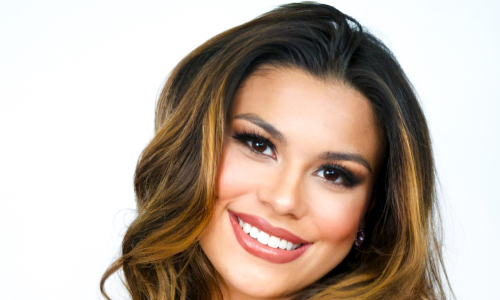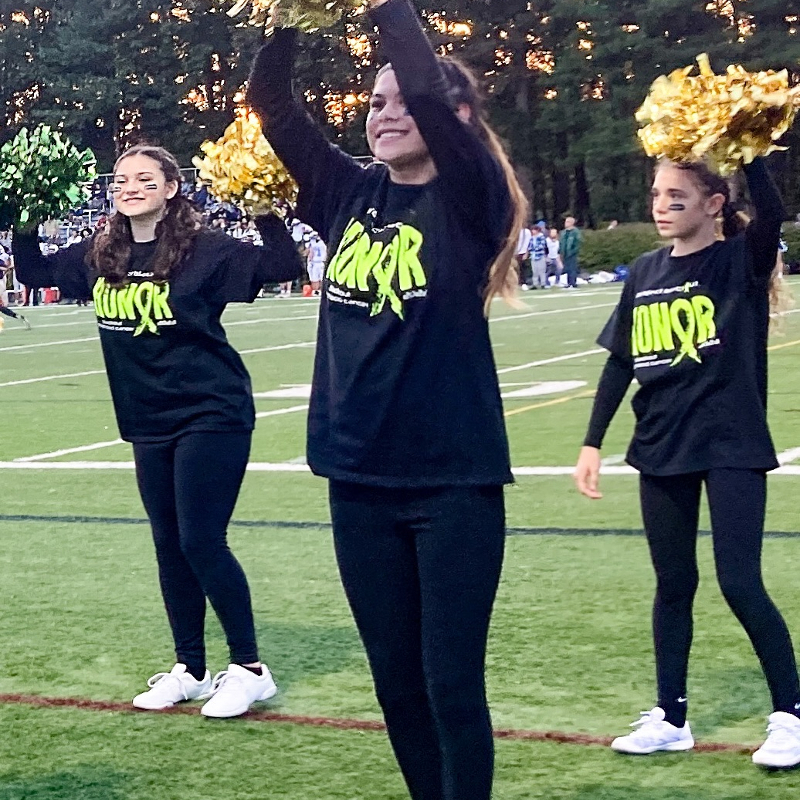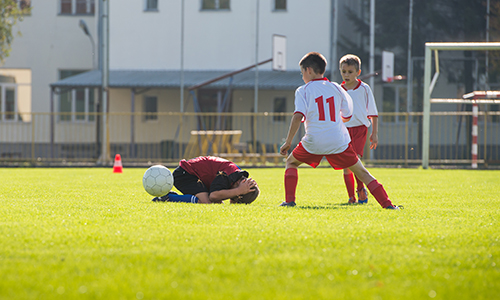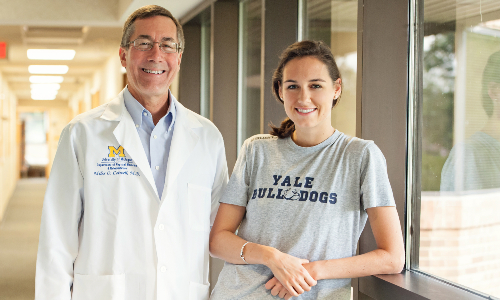Get Inspired
A Competitive Cheerleader on Impact of Concussions
Isabel Dwyer is a competitive and sideline cheerleader who had to sit out for a season after a series of concussions in high school. She battled headaches, was sensitive to light and sound, and had trouble focusing during class. Eventually, Isabel was diagnosed with Post-Concussion Syndrome (PCS). As the Miss Lilac State Teen in New Hampshire, Isabel is using her platform to educate others on recognizing concussions and understanding their emotional and social impact. Read Isabel Dwyer’s Inspiring Story below.

By Isabel Dwyer
For the longest time, I was always taught in competitive and sideline cheerleading to push through, finish out strong, and to always do what's best for your team. But that was before I suffered two concussions.
My first concussion occurred in the sixth grade during gym class when I was hit in the head by a basketball. At first, my symptoms didn’t seem too bad. I experienced headaches and sensitivity to light for a couple of weeks before being pushed back into cheer at nationals in Florida.
The second concussion happened during cheer practice in my sophomore year of high school. I was holding up my flyer in a one-leg extension when she lost her balance. Her tailbone hit my head, causing me to fall back on the mat. The next morning, I had a bruise on my forehead and felt dizzy and nauseous. The lights in my room were too bright. The familiar sounds of the TV, my dog barking, and my family talking were suddenly much too loud. I was determined to get through the school day with sunglasses so I could cheer at that evening's football game, but I only got past the first period before being sent home. I was diagnosed with a concussion at urgent care and again by my pediatrician the following day.

My days were plagued with constant headaches, sensitivity to light, loud noises, and trouble concentrating at school. Teachers did not understand that my thinking was slow, and trying to focus made my head hurt. Accommodations varied from class to class, which only increased my confusion and anxiety. Some teachers simply did not understand why I could not turn in my work after a week's extension. My teammates called me a faker and stopped talking to me.
Concussions can be difficult for some to understand because there aren’t obvious signs of injury — no casts, scars, or crutches to show people you are hurt. I was accused of lying to get out of practice, which pained me because it was far from the truth. I was so desperate to get back to cheering that I visited my pediatrician weekly to see my progress. My recovery was much slower compared to that of the first concussion. Eventually, I was diagnosed with Post-Concussion Syndrome (PCS).
My doctor explained the dangers of returning to cheer while I was still experiencing symptoms. Another injury to my brain could prolong recovery even further. The pressure I received from teammates, coaches, and teachers made me feel like I was a disappointment. It led to isolation, depression, and anxiety. My concussion lasted the whole first semester. Even now, after a year, I suffer from symptoms. It’s still hard to focus all my thoughts clearly, and comprehending others takes time.
Though I am not yet fully recovered, I’ve decided to turn a negative experience into a positive. Currently, I am a Miss America Organization titleholder for the state of New Hampshire. I am Miss Lilac State’s Teen, and my community service initiative is “When in Doubt Sit Them Out: Awareness of Athletic Concussions.” I use my platform to inform athletes, parents, and teachers not only the signs and symptoms of concussions, but their social and emotional impact, as well.
It's important to share your story so people can become more aware about the severity of concussions and their aftereffects. It’s so difficult to get through it alone, but knowing that others have been in similar situations and successfully emerged on the other side is tremendously inspiring. That's why I encourage everyone to share their stories, too!
You May Also Like

How you respond to a concussion can make all the difference in how you recover. Learn the five steps experts recommend you take after concussion.
Concussion Response
Finding a doctor who understands concussion is key to managing your injury. Learn how to seek out the best care and when to try active treatments for concussion.
Concussion Treatments